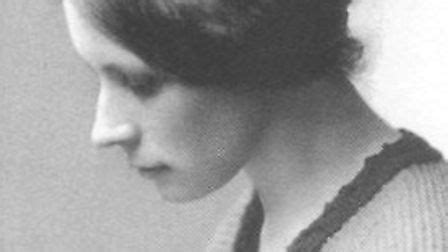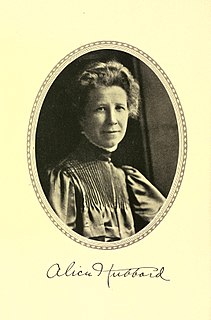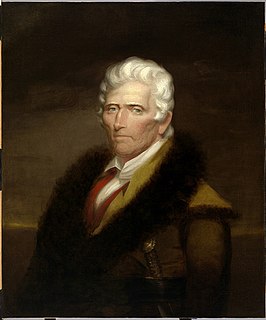A Quote by Meriwether Lewis
A woman brought her child with an abscess in the lower part of the back, and offered as much corn as she could carry for some medicine; we administered to it of course very cheerfully.
Related Quotes
My mother was the kind of person who was very much part of her tribe and very much a satellite of her tribe. She was the girl who left her family at the age of 17 and went to Washington. My mother was orphaned at three and then was brought up by my aunt Goldie. So, yes she belonged, but there was a part of her that didn't.
The idea is that Jodie Foster is with her child and she's going back to New York from Germany with her husband's body. She loses her child on a plane, and you think, 'How can that happen?' There's no record of her having brought a child onto the plane, and the captain is left wondering about whether she's telling the truth. You never really know if she's telling the truth or not.
She bent her finger and then straightened it. The mystery was in the instant before it moved, the dividing moment between not moving and moving, when her intention took effect. It was like a wave breaking. If she could only find herself at the crest, she thought, she might find the secret of herself, that part of her that was really in charge. She brought her forefinger closer to her face and stared at it, urging it to move. It remained still because she was pretending... . And when she did crook it finally, the action seemed to start in the finger itself, not in some part of her mind.
As a woman, she [Penelope Cruz] obviously has changed as she has become an adult. But, as an actress, I actually might say that she has not changed that much. And she has something great, especially in comedy, and she hasn't been exploited as much as she could be in comedy, but particularly in that mix between comedy and drama. She's got a very special quality about her. You can place her in very extreme situations, especially very painful situations, in terms of how her character interprets it. And sometimes, the deeper and more human that pain is, the better she is at it.
Part a of scene from 'Bitterblue' between Madlen (Bitterblue's medicine woman) and Bitterblue: Madlen came to sit beside her [Bitterblue] on the bed. "Lady Queen," she said with her own particular brand of rough gentleness. "It is not the job of the child to protect her mother. It's the mother's job to protect the child. By allowing your mother to protect you, you gave her a gift. Do you understand me?
Candleford Green was but a small village and there were fields and meadows and woods all around it. As soon as Laura crossed the doorstep, she could see some of these. But mere seeing from a distance did not satisfy her; she longed to go alone far into the fields and hear the birds singing, the brooks tinkling, and the wind rustling through the corn, as she had when a child. To smell things and touch things, warm earth and flowers and grasses, and to stand and gaze where no one could see her, drinking it all in.
Go back' Taran shouted at the top of his voice.'Have you lost your wits?' Eilonwy, for it was she, half-halted. She had tucked her plaited hair under a leather helmet. The Princess of Llyr smiled cheerfully at him. 'I understand you're upset,' she shouted back, 'but that's no cause to be rude.' She galloped on. For a time, Taran could not believe he had really seen her.
Even after the age of 50 it was impossible for me to see my mother as a human being. I felt she was a monster, and she had subtly been influencing my behavior and my thoughts and my dreams for so long that she was kind of a monster; she was a demon. And when I brought her back to life, I could feel that malevolent presence around me again, that woman who was totally incapable of giving nurturing to anybody, and, you know, her selfishness and her withdrawn indifference to everything but her own needs.
My father was a dark-skinned brother, but my mother was a very fair-skinned lady. From what I understand, she was Creole; we think her people originally came from New Orleans. She looked almost like a white woman, which meant she could pass - as folks used to say back then. Her hair was jet-black. She was slim and very attractive.
From the first time he'd met her, he'd sensed an air of contradiction about her. She was very much a woman, but still retained a waiflike quality. She could be brash, and at times deliberately suggestive, yet she was painfully shy. She was incredibly easy to get along with, yet she had few friends. She was a talented artist in her own right, but so self-conscious about her work that she rarely completed a piece and preferred to work with other people's art and ideas.
As a late teenager, I had some puppy fat on me, and I noticed that I could put on weight. I have always been very disciplined because my mother was very beautiful, a very pretty woman, but she was immobilised by obesity. At her biggest, she was about 17 stone. And she was always on some sort of fad diet.
And of course, FDR was very charming. At 6'2", he was tall enough to be her beau, and they made a beautiful couple. And she could encourage him. His mother also encouraged him. So this notion of a woman with ideas of her own and a spirit of her own and a style of her own was very congenial to Franklin. And he loved her. And their romance was a very dear and true and deep romance.
...she could express her soul with that voice, whenver I listened to her I felt my life meant more than mere biology...she could really hear, she understood structure and she could analyze exactly what it was about a piece of music that had to be rendered just so...she was a very emotional person, Annette. She brought that out in other people. After she died I don't think I ever really felt anything again.








































